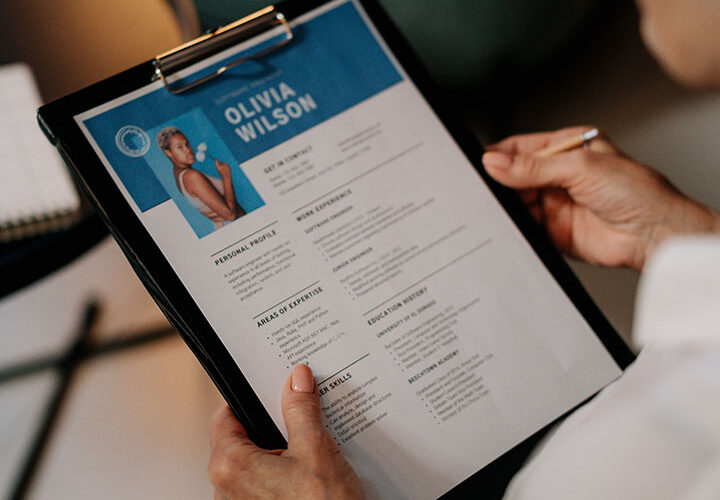YES! Another Blog About Resume Writing Tips
Resume writing is not common sense. You usually become a good, practical resume writer after you have been the reviewer of resumes.
Over the past 5+ years I have had the awesome responsibility of being able to offer good jobs to good candidates. From interns to Project Managers to Construction Managers, I have looked at more than 100 resumes and with each one I try to use my vision to see the potential of each candidate; knowing that the resume isn’t a person’s potential and that not everyone gets the same opportunities. Sometimes I’m looking for the big fish in the small pond or leadership in areas outside the office. Yet, I am known to be meticulous (my word), some may even call it nitpicky when it comes to the little things in resumes so, I decided to put down a few thoughts on paper to share.

I fully realize many of these tips are obvious to some of us who work around resumes daily, but recently after helping my daughters with their resumes, I knew I had to write this. This is not a how to prepare your resume, it’s more like a how not to prepare your resume. Let’s start here first:
Name Your Resume File
Name your resume file appropriately, for example KFoxx Resume March 2021.pdf. Put your name in the file name and the date. Month and year is okay. This is the very first impression and very important. It answers a simple question, does the candidate know how to save and rename a file? Do they pay attention to these fine details? Plus, it helps me search, save and/or file the resume easier!
Resume Length
There is still this theory that your resume should only one page. I’m not sure where it started, but it is dated and must end today. In the digital age, it is not a burden for resumes to be 2 pages. I have seen resumes that leave out critical information just to keep it under one page! This is a mistake. If you have a 20-year career your resume could be 5 to 10 pages long. Let’s be clear though, if you only have one page worth of content…one page is okay!
Acronyms
Dump the acronyms! For instance, PIP could mean ‘Public Involvement Plan’ or ‘Performance Improvement Plan.’ One is good, the other is not so good. I do realize that if you are applying to a very specific job like nursing, then you may be able to use acronyms like EKG. But I would limit their use.
Consider this. I may be looking for someone with some engineering experience. You might say ‘I was the COE’ in your resume. A non-technical person may be the first reviewer of your resume and may discard or downgrade your resume because it does not have the word ‘engineer’ in it. This is a mistake, of course, because in our industry COE could mean ‘Corps of Engineers’ or ‘Chief of Engineers’ so always spell it out. This advice is particularly useful if you are branching outside your normal industry.
Include the Clients
Who have you done work for? Don’t just name the company you worked for and what responsibility you had. Who was the end user? In my example, the end user might be the District Department of Transportation (DDOT). I might be looking for someone who has experience with government agencies. Or better than that, I may be looking for someone who has DDOT experience. If you did not mention DDOT was the client that you did the work for I will not know and you and I would both miss out on a great partnership! These client experiences bring significant value to your resume. Add them!
Leadership Roles
Leadership roles in organizations say a lot about a candidate. Being a member of an organization is nice, but it doesn’t show a lot of initiative. Even putting the fact that you were a team captain is a plus. Good people are hard to find and when you find someone who has volunteered for a leadership position that shows the candidate is willing to go one step beyond the masses.
References
If you have good, trustworthy and recognized references, always add them to the bottom of the resume. I do realize that people always list references that are going to give them great recommendations, but if these individuals are renowned in your field, this could be a plus. I may know them and pick up the phone for a quick chat. Some resume reviewers may disagree with this one and that is okay also.
Cover Letter
If you have a chance to submit a cover letter, submit a cover letter. It is more professional. It does not have to be long. If you are not applying to a professional job than you may chose not to add one, which is also okay.
I realize there are dozens of tips on how to write resumes; you may have your own pet peeves that didn’t make this list. My hope is that you can take away one tip from here and we can collectively improve the quality of resumes.
Thanks for the opportunity to share.
About the author:
Keith Foxx, P.E. is Principal at FOXXSTEM, an organization that focuses on building community empowering infrastructure utilizing science, technology, engineering and management.



